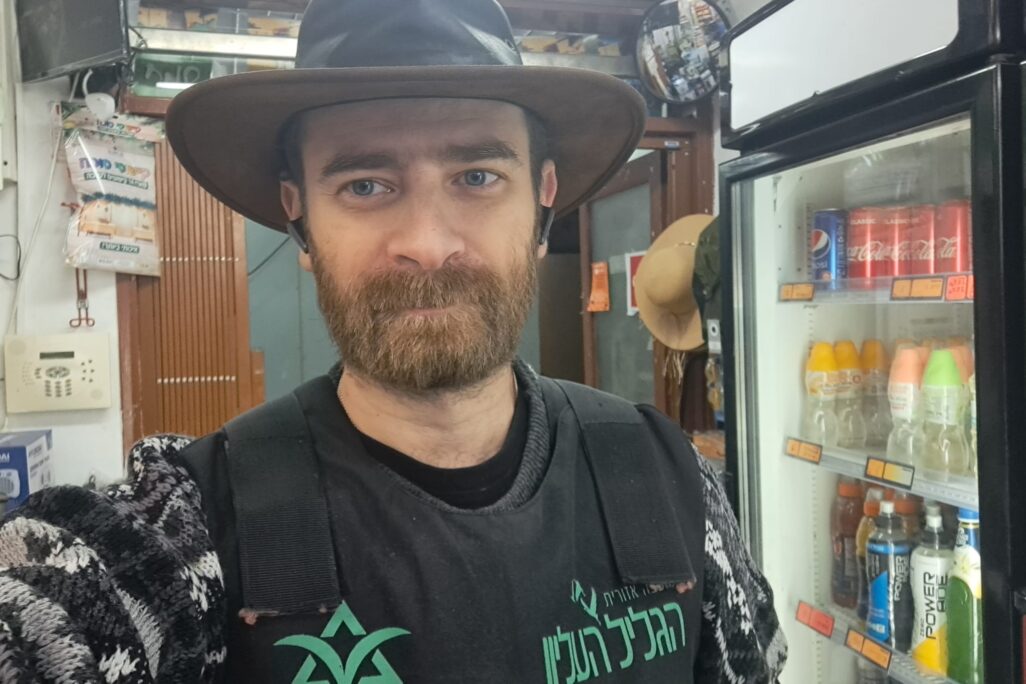
After months of missile attacks from Hezbollah, Kibbutz Manara, located about 150 meters from the border with Lebanon, is mostly abandoned. As of December, 86 of the kibbutz’s 155 homes were damaged in the attacks. Although the kibbutz has mostly become a ghost town, grocery store manager Igor Abramovich, 42, refuses to leave, insisting on stocking the store to provide food for soldiers stationed in and around the kibbutz.
“I am not a hero,” Abramovich told Davar. “I come here because I am needed.”
After the war broke out, Abramovich moved his family to the Meir Shfeya youth village, nearly 100 kilometers south of Manara. He spends most of his week on Manara and spends the weekend in Meir Shfeya with his two daughters.
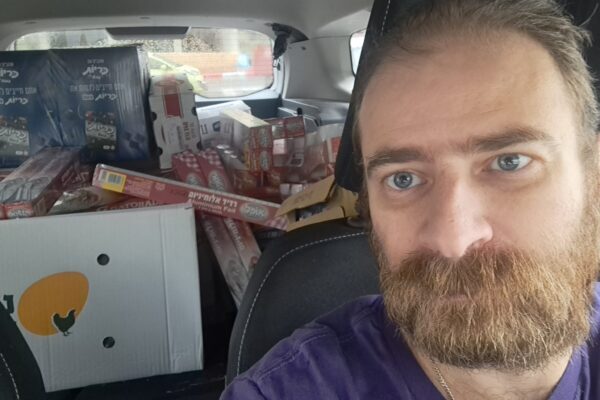
Abramovich’s store serves hundreds of soldiers in several battalions, most of whom come mainly for cigarettes. His involvement in the kibbutz's emergency team allows him to move freely in the area, which has mostly been evacuated of civilians, without too many questions from the army.
With a trailer attached to his van, Abramovich travels across the country to collect supplies, which he then hauls to his grocery store. “At first I was afraid but at some point I got used to it,” he said of traveling in the area, which can be subject to missile fire. “There’s no way to explain it. One can get used to anything.”
He proudly says that his grocery store is the only one in the area that allows soldiers to purchase cigarettes and soft drinks without having to risk trips to Kiryat Shmona, a twenty minute drive in dangerous conditions.
During the first month of the war, Abramovich provided a significant amount of supplies to soldiers in the area. “I was the source of water, hot food and mattresses. The army was in chaos. Soldiers slept for weeks on the floor,” he said.
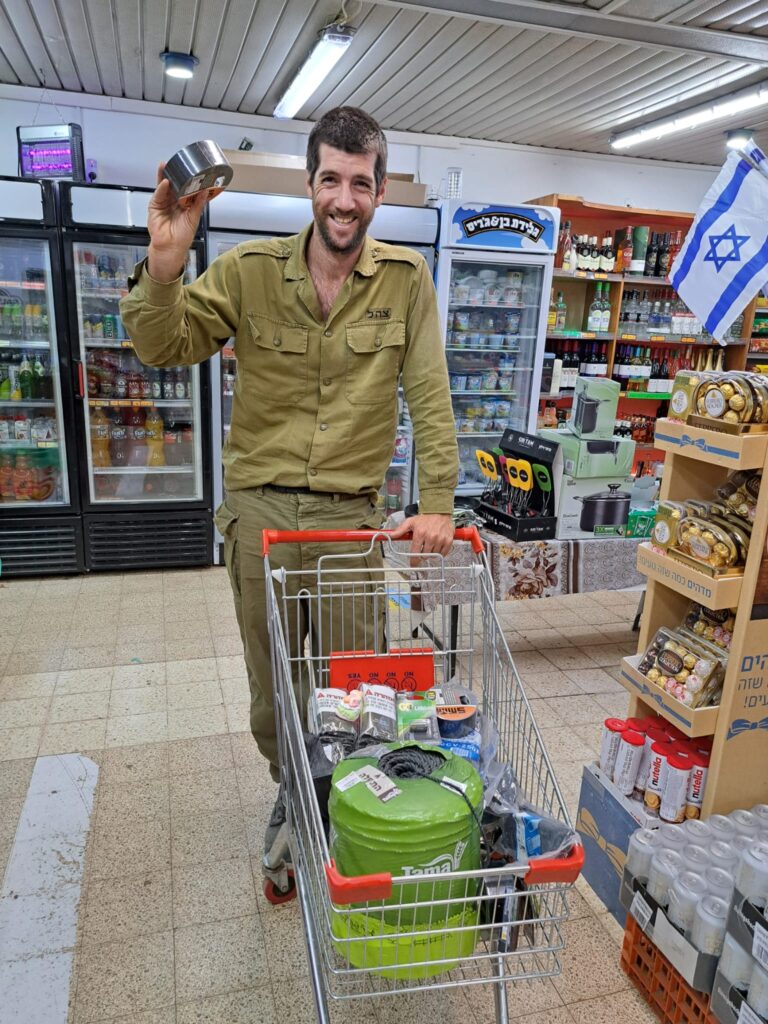
Abramovich came to Manara with his wife and daughters seven years ago, after searching for a small community to join. In the past decade, over 50 new members joined the kibbutz, bringing the average age down from above 70. One of the kibbutz members is 98-year-old Rachel Rabin, the late Prime MInister Yitzhak Rabin’s sister. And “there are women even older than her!” Abramovich said with a laugh.
Manara was established in 1943, making it the oldest kibbutz in the area. According to Abramovich, the kibbutz stopped taking in new members in the 1990s and started again only in 2014. “So two communities were created, an old one and a young one, with the latter growing moderately but consistently,” Abramovich explained. “A decade ago, there were 180 people here, some of whom have died since then, but on the day of the official evacuations, 280 people boarded the buses.”
It's hard to live on a border and at such a distance from Israel’s major cities, even during peacetime. Those who wish to join Manara are required to rent a house for a year before starting the kibbutz membership process, so that new families can understand if they will be able to survive the cold and rainy winter alone on the cliffs.
“If you don't have someone to sit with over a glass of whiskey in the evening, you're in trouble,” Abramovich said. “If you’re not involved in creating a social life for yourself, it’s terribly lonely here. Every family or kibbutz member has to be able to figure out their own jobs as well. There aren’t many jobs around. There is a hotel that is operated by outside workers, and some other jobs in the area. Twenty percent of the members are self-employed with a business they opened in the area. Some work in high-tech in the center of Israel half the week, and quite a few chefs, too.”
Abramovich described Manara as “far from a rich kibbutz—we are even one of the poorest.” But he noted Manara’s strong community, excellent education system, and amazing views—while noting that the scenic Lebanese hills that make up the view are “currently shooting at us.”
Manara’s older neighborhood, which is completely exposed to the boarded, has been badly damaged. The newer neighborhood, where Abramovich lives, is in a pocket in the mountain, which helps protect it from damage.
“I don’t think the country expected this kind of attack at all,” Abramovich said, recounting the guided anti-tank missiles that have targeted his community. “There is no way to defend against this missile, except to make sure there are no missiles.”
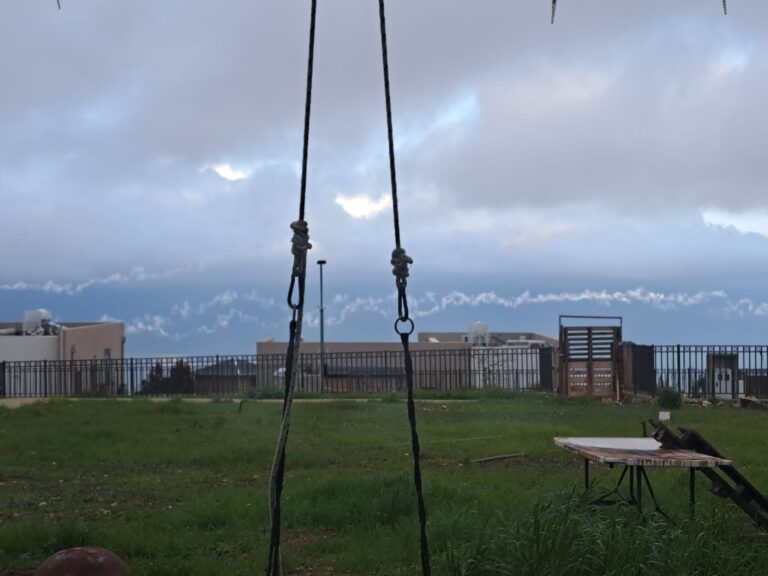
When the emergency alarm sounds, Abramovich isn’t afraid, because he knows that the alarms indicate missiles fired from farther away in Lebanon toward Kiryat Shmona, Israel’s northernmost city. “Because of the special location of Manara on the top of the mountain, it is impossible to hit us with these missiles,” he explained.
The biggest fear for those in the area is anti-tank missiles, which fly straight and accurately: “The only good thing about them is that before they explode there is a whistling sound,” Abramovich said. “It’s a kind of warning, saying that you need to lie down on the floor.”
He noted that Israeli military activity in the area has also damaged the kibbutz. “The armored personnel carriers destroyed the roads, the water pipes, the sewage and the gas—which is connected by a central system to all of the kibbutz houses,” A few days ago, a truck accidentally collided with the entry gate and completely destroyed it. We live in the midst of destruction.”
By order the the Israel Defense Forces, Manara is designated as a combat zone, and only the military is allowed to be present. Part of Abramovich’s work on the emergency team involves assessing damage to kibbutz property and making reports to the military.
Even when Abramovich comes across relatively minor damage, like a broken window, he is forbidden from fixing it.
“Anything that looks like the beginning of renovation signals to Hezbollah that there are civilians who have probably returned, and the building will become the first target,” he explained. “The army works hard to narrow down targets, not expand them. So even if I see a broken window that can be easily blocked with basic equipment, I don’t fix anything. Besides, no sane building contractor would be willing to come up here.”
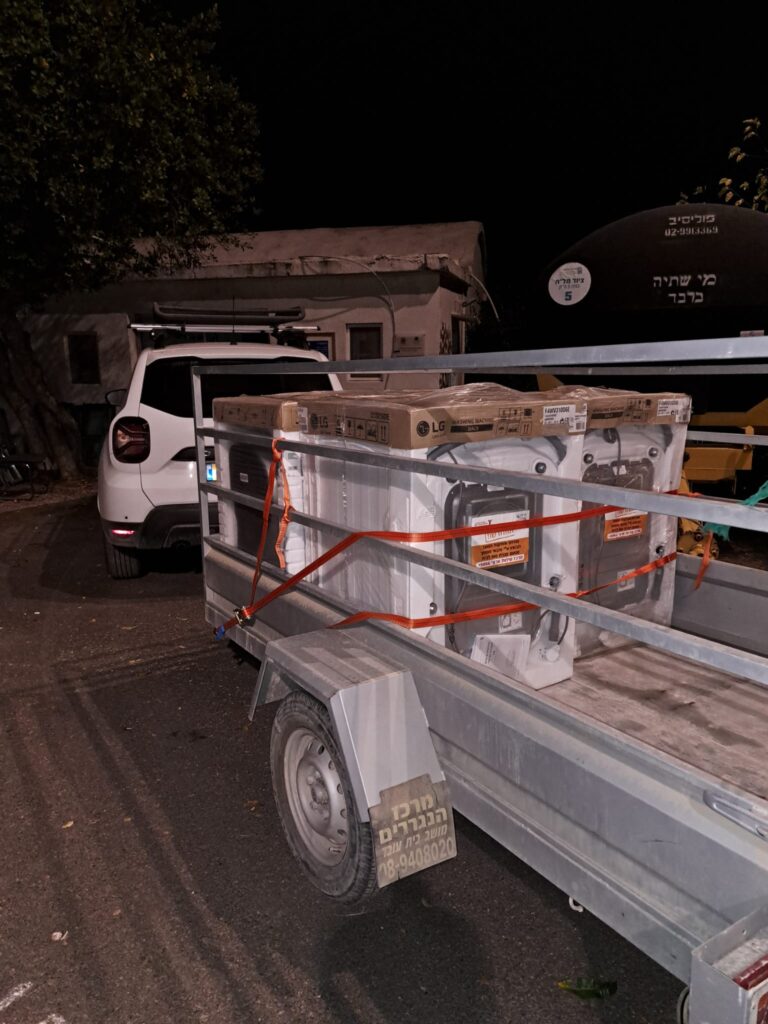
Photos have been released showing ruined houses on Manara, but according to Abramovich, the real damage, which will take a significant amount of time and money to address, isn’t obvious from the photos. "There are electrical systems here that have collapsed. Sewage is overflowing. You will have to move everything here to see the real depth of the damage,” he said.
During the coming months, the community is expected to gradually gather in temporary residences in Kibbutz Gadot, about 20 kilometers south of Manara. Manara’s buildings and infrastructure will likely take at least a year to rebuild, starting only after the end of hostilities. But Abramovich believes that the community will remain strong in the interim. “Manara is a human community, not a community of houses,” he said.
The education system in the area is supposed to open in December 2024, but Abramovich is doubtful about that timeline. “We will not return before the summer of 2025,” he said. “People keep saying that they will return, but I don't think everyone will. Even after that date, it will still take quite a bit of time to fully restore the kibbutz.”
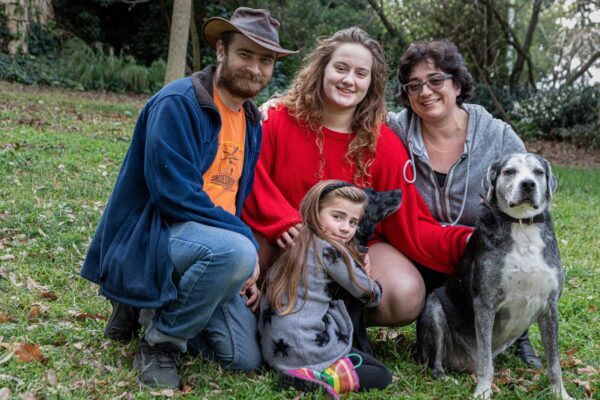
Even as some kibbutz members are wary about returning, some Israelis are looking to join Manara. “The kibbutz absorption coordinator told us that it received, during the fighting, dozens of inquiries from people who want to look into life here,” Abramovich said. “I’m sure we’ll continue to grow. We won’t be 10,000 people. But our original goal is 400, and we'll bring them.”
While he plans to stay on Manara, Abramovich rejects the idea that there will ever be total security near the border with Lebanon. “I trust the army and whoever makes the decisions that in the end there will be peace here—but it won't be here forever,” he said. “We had peace here for 18 years. If they sell me peace for another 18, I’ll buy it. The demand that there’ll be a quiet on the border forever and nothing will happen—this is a distorted view of reality. I am 42 years old and I think that by the end of my life, I will experience three or four more wars here.”






